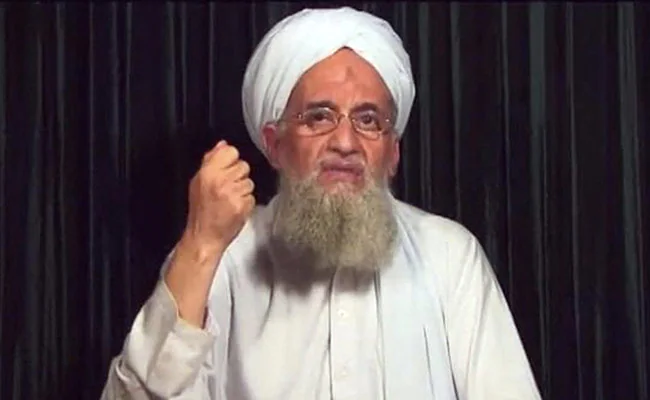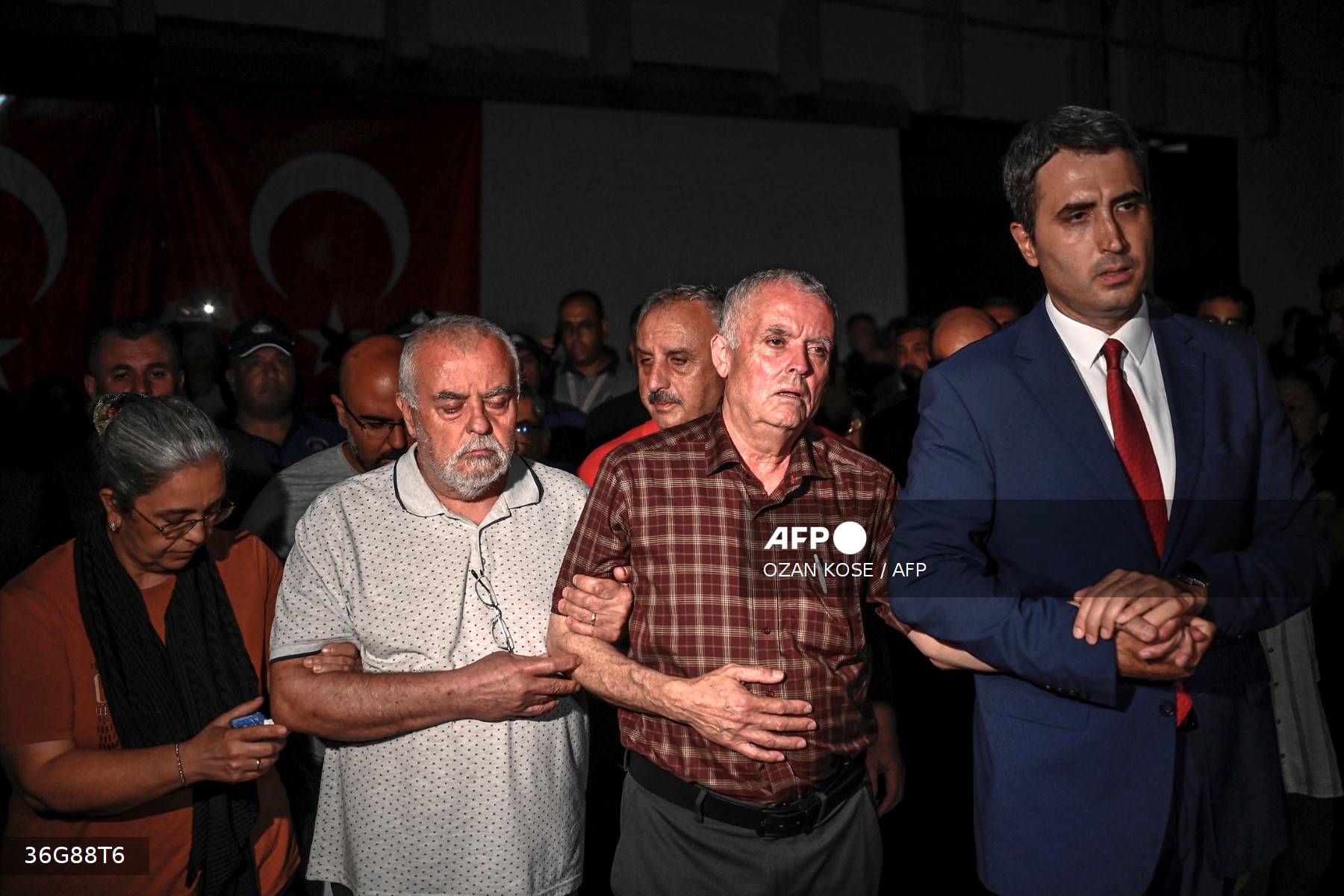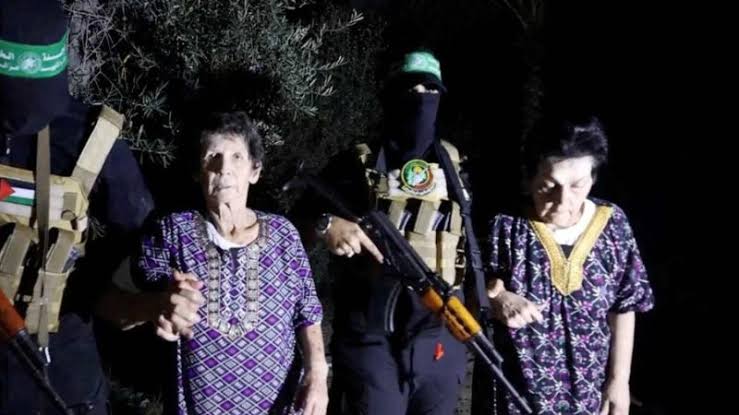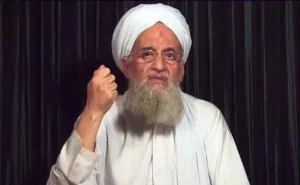Foreign
US forces kill Al-Qaeda leader Al-Zawahiri in drone strike

US forces kill Al-Qaeda leader Al-Zawahiri in drone strike
Ayman al-Zawahiri, an Al Qaeda chief, has been killed in a United States drone strike, President Joe Biden disclosed on Monday.
In a somber televised address, Biden noted that “justice had been delivered” to the families of the September 11, 2001 attacks.
According to him, the final go-ahead for the high-precision strike that successfully targeted Zawahiri in the Afghan capital over the weekend.
“Justice has been delivered and this terrorist leader is no more,” Biden said, adding that he hoped Zawahiri’s death would bring “closure” to families of the 3,000 people killed in the United States on 9/11.
A senior administration official said Zawahiri was on the balcony of a house in Kabul when he was targeted with two Hellfire missiles, an hour after sunrise on July 31, and that there had been no US boots on the ground in Afghanistan.
“We are not aware of him ever leaving the safe house. We identified Zawahiri on multiple occasions for sustained periods of time on the balcony of where he was ultimately struck,” the official said.
According to the official’s account, the president gave his green light for the strike on July 25 — as he was recovering in isolation from Covid-19. Biden said there were no civilian casualties in the operation.
It was the first known over-the-horizon strike by the United States on an Al-Qaeda target in Afghanistan since American forces withdrew from the country on August 31, 2021, AFP reported.
US Secretary of State Antony Blinken said Monday evening that “by hosting and sheltering” Zawahiri, the Taliban had “grossly violated the Doha Agreement” signed in 2020, which paved the way for America’s withdrawal.
Zawahiri, an Egyptian surgeon who grew up in a comfortable Cairo household before turning to violent radicalism, had been on the run for 20 years since the 9/11 attacks.
He took over Al-Qaeda after Osama bin Laden was killed by US special forces in Pakistan in 2011, and had a $25 million US bounty on his head.
Over the weekend the Afghan interior ministry denied reports circulating on social media of a drone strike in Kabul, telling AFP a rocket struck “an empty house” in the capital, causing no casualties.
Early Tuesday in Kabul, however, Taliban spokesman Zabihullah Mujahid tweeted that an “aerial attack” was carried out on a residence in the Sherpur area of the city.
“The nature of the incident was not revealed at first. The security and intelligence agencies of the Islamic Emirate investigated the incident and found in their preliminary investigations that the attack was carried out by American drones,” his tweet said.
The news comes a month before the first anniversary of the final withdrawal of US troops from Afghanistan, leaving the country in the control of the Taliban insurgency that fought Western forces over the preceding two decades.
Under the 2020 Doha deal, the Taliban promised not to allow Afghanistan to be used again as a launchpad for international jihadism, but experts believe the group never broke its ties with Al-Qaeda.
“What we know is that the senior Haqqani Taliban were aware of his presence in Kabul,” the Biden official said.
Taliban interior minister Sirajuddin Haqqani also heads the feared Haqqani Network, a brutal subset of the Taliban blamed for some of the worst violence of the past 20 years and which has been described by US officials as a “veritable arm” of Pakistani intelligence.
– Doctor turned jihadist –
Zawahiri, 71, lacked the potent charisma that helped bin Laden rally jihadists around the world, but willingly channeled his analytical skills into the Al-Qaeda cause.
He was believed to be the main strategist — the real mastermind who steered operations, including the September 11 attacks, as well as bin Laden’s personal doctor.
Saudi Arabia, the home country of bin Laden as well as many of the 9/11 hijackers, welcomed the announcement of Zawahiri’s death.
“Thousands of innocent people of different nationalities and religions, including Saudi citizens, were killed,” by terrorists under his leadership, the Saudi foreign ministry said.
Al-Qaeda is believed to have been degraded in the years since the US invasion of Afghanistan, and the White House official said Zawahiri was “one of the last remaining figures who carried this kind of significance.”
The organization, agreed Soufan Center researcher Colin Clarke, is “at a crossroads.”
“Despite Zawahiri’s leadership, which minimized AQ’s losses while rebuilding, the group still faces serious challenges going forward. For one, there’s the question of who will lead al Qaeda after Zawahiri’s gone,” he said.
Zawahiri’s father was a renowned physician and his grandfather a prayer leader at Cairo’s Al-Azhar institute, the highest authority for Sunni Muslims.
He became involved with Egypt’s radical Muslim community at a young age and published several books which came for many to symbolize the radical Islamist movement.
He left Egypt in the mid-1980s, heading for Pakistan’s northwestern city of Peshawar where the resistance to the Soviet occupation of Afghanistan was based.
It was at that time, when thousands of Islamist fighters flooded into Afghanistan during the 1980s, that Zawahiri and bin Laden met, and in 1998 he became one of five signatories to bin Laden’s “fatwa” calling for attacks against Americans.
Jihadist monitor SITE said some militants were questioning the veracity of the report he had been killed, while others believed Zawahiri had achieved his desire of “martyrdom.”
As for Al-Qaeda’s future without him, SITE said jihadists were bullish, with one writing: “If Sheikh Ayman al-Zawahiri is dead, there are a thousand Aymans.”
Foreign
Israeli army vows to save hostages

Israeli army vows to save hostages
The Israeli army will use all means to bring back hostages still held in Gaza, its spokesman told a group of foreign journalists on Friday in the war-scarred city of Rafah.
“We need to do everything, everything we can, in all means, to bring them back home,” military spokesman Daniel Hagari told the journalists embedded with the Israeli army.
“This is one of the goals of the war, and we will achieve it.”
Rear Admiral Hagari was speaking in front of a shaft in the Tel al-Sultan neighbourhood of Rafah that connects to a tunnel where Israel says Hamas shot dead six hostages late last month.
Their deaths spurred an outpouring of grief in Israel as well as anger at the government, which critics say is not doing enough to reach a deal that would end the war in Gaza and secure the remaining hostages’ release.
The war was triggered by Hamas’s unprecedented attack on Israel, which resulted in the deaths of 1,205 people, mostly civilians, according to an AFP tally based on Israeli official figures. The count includes hostages killed in captivity.
The militants also seized 251 hostages, 97 of whom are still in Gaza, including 33 the Israeli military says are dead.
Israel’s retaliation has killed at least 41,118 people in Gaza, according to the territory’s health ministry. The UN human rights office says most of the dead have been women or children.
Israel has denied independent access to Gaza for international media during the war, now in its 12th month.
Rafah, in the far south of Gaza, has been hit hard by the fighting, and AFPTV footage on Friday showed streets lined with the bombed-out shells of buildings, many partially collapsed with rubble spilling into the streets.
Hagari said the destruction was intended to wipe out the network of tunnels under the city.
“You have a maze of tunnels here, a maze of tunnels here in Rafah, underneath the houses. This is why the destruction,” he said.
“There is even not one point left without a tunnel here in Rafah.
“In order to defeat (Hamas) we need to take control of this underground system.”
The army also showed journalists the Philadelphi Corridor, a narrow strip of land that has emerged as a key sticking point in talks towards a possible ceasefire mediated by Egypt, Qatar and the United States.
Israeli Prime Minister Benjamin Netanyahu said last week that retaining control of the corridor was important to stop any arms smuggling into Gaza from Egypt.
Hamas is demanding a complete Israeli withdrawal from the territory.
Foreign
Hamas Frees Two Israeli Women From Gaza

Hamas Frees Two Israeli Women From Gaza
Hamas on Monday (23 October) said it had freed two Israeli women who were among the more than 200 hostages taken during its 7 October rampage in southern Israel while sources said the US had advised Israel to hold off on a ground assault in the Gaza Strip.
“We decided to release them for humanitarian and poor health grounds,” Abu Ubaida, spokesman for the armed wing of the Palestinian Hamas militant group, said on Telegram.
The Israeli prime minister’s office issued a statement confirming that the women, whom it named as Nurit Cooper, 79, and Yocheved Lifshitz, 85, were handed over to the Israeli military and would be taken to a medical facility.
The two were kidnapped from Kibbutz Nir Oz, near the Gaza border, along with their husbands, who were still held by Hamas, it added. Hamas freed them after releasing an American woman and her daughter on Friday.
All four were seized in the 7 October cross-border assault in which the Islamist Hamas killed 1,400 people.
In public, the United States has stressed Israel’s right to defend itself but two sources familiar with the matter said the White House, Pentagon and State Department have stepped up private appeals for caution in conversations with the Israelis.
A US priority is to gain time for negotiations to free other hostages, especially after Friday’s unexpected release of Americans Judith and Natalie Raanan on Friday, said the sources, who spoke before the hostage releases were announced on Monday.
Asked about the possibility of a ceasefire, US President Joe Biden said: “”We should have those hostages released and then we can talk.”
Israel pounded hundreds of targets in Gaza from the air on Monday as its soldiers fought Hamas militants during raids into the besieged Palestinian strip where deaths are soaring and civilians are trapped in harrowing conditions.
Gaza’s health ministry said 436 people had been killed in bombardments over the last 24 hours, most in the south of the narrow, densely populated territory, next to which Israeli troops and tanks have massed for a possible ground invasion.
The Israeli military said it had struck more than 320 targets in Gaza over 24 hours, including a tunnel housing Hamas fighters, dozens of command and lookout posts, and mortar and anti-tank missile launcher positions.
The Israeli bombardment was triggered by the 7 October assault, the bloodiest episode in a single day since the state of Israel was founded 75 years ago.
With Gaza’s 2.3 million people running short of basics, European leaders looked set to follow the United Nations and Arab nations in calling for a “humanitarian pause” in hostilities so aid could reach them.
Foreign
Prince Williams Ends Homelessness In The Uk

Prince Williams Ends Homelessness In The Uk
PRINCE WILLIAMS– The Prince of Wales has visited Sheffield as he launches a five-year campaign to end homelessness in the UK.
The city is one of six places to benefit from Prince William’s charitable fund.
The project means there will be a team in Sheffield and funding for the council and other agencies to support those who don’t have a stable home.
Prince William visited a youth project in the city as part of his tour.
Young people from Reach Up Youth met with the royal visitor to share their stories and discuss the work the organization is doing to support those struggling.
In Sheffield, the prince’s scheme, Homewards, will focus on families experiencing hidden homelessness, including those living in temporary accommodations such as hostels and shelters.
The city council said it would also address an issue where a disproportionate number of people of black and minority ethnic backgrounds were becoming homeless.
The authority added that teams, made up of a range of partners, would “further strength their links and the ability to direct people to services that they might need”.
The council said the programme will aim to reach families before they risk losing their homes and plans on exactly how it will work are being developed over the coming months
.
Kate Josephs, chief executive for Sheffield City Council, said: “We are really proud that Sheffield has been selected to be part of Homewards.
“No one should find themselves in crisis, without a roof over their heads and this is an incredible opportunity to prevent people and families from becoming homeless.
“This programme, created by Prince William, will enable us to focus efforts, with much-needed financial backing, on getting people the help and support they need before they lose their homes.”
-

 celebrity radar - gossips6 months ago
celebrity radar - gossips6 months agoWhy Babangida’s Hilltop Home Became Nigeria’s Political “Mecca”
-

 society6 months ago
society6 months agoPower is a Loan, Not a Possession: The Sacred Duty of Planting People
-

 news6 months ago
news6 months agoTHE APPOINTMENT OF WASIU AYINDE BY THE FEDERAL GOVERNMENT AS AN AMBASSADOR SOUNDS EMBARRASSING
-

 society5 months ago
society5 months agoReligion: Africa’s Oldest Weapon of Enslavement and the Forgotten Truth











